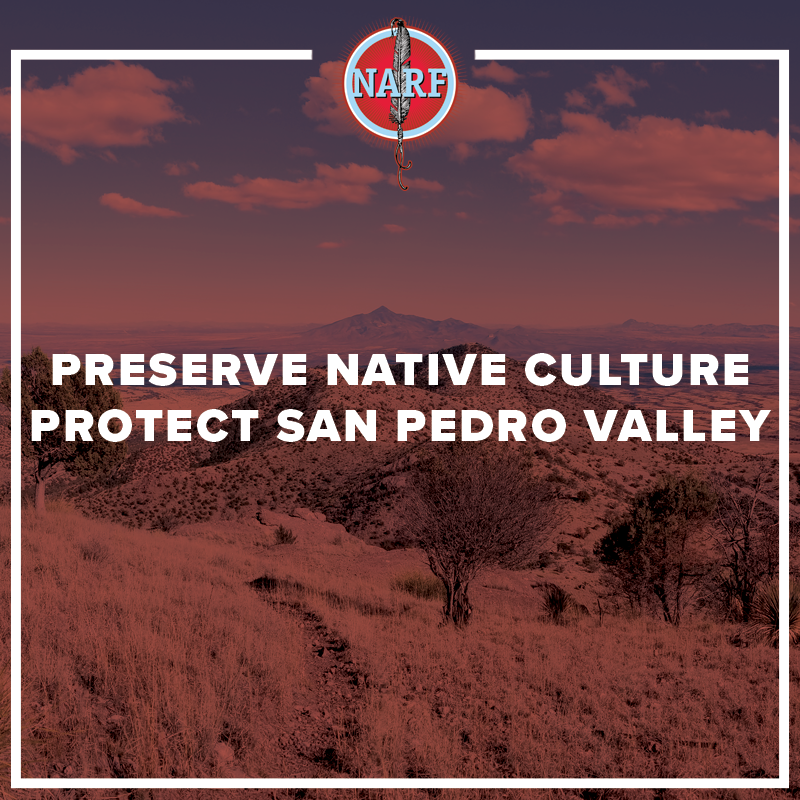On Monday, July 29, 2024, the National Association of Tribal Historic Preservation Officers (NATHPO) filed an amicus brief in support of the lawsuit filed by the Tohono O’odham Nation and the San Carlos Apache Tribe against the U.S. Department of Interior (DOI) for failing to follow the Section 106 consultation process outlined in the National Historic Preservation Act of 1966 (NHPA).
The Act requires federal agencies to consult with Tribal Nations about the potential effects of projects they permit on places of traditional religious and cultural importance, and to develop and consider alternatives that avoid adverse effects. The Tribal Nations allege that the federal government failed to do that in issuing a right-of-way for a transmission line proposed by SunZia Transmission, LLC. NATHPO weighed in with a “friend of the court” brief as the lawsuit is now before the U.S. Court of Appeals for the Ninth Circuit and the Tribal Nations seek to hold DOI accountable for its failure to consult with them.
“Meaningful consultation means allowing a conversation to happen at a point where outcomes and solutions like re-routing or even canceling a project remain on the table. In this case, that simply did not happen. The Department of Interior failed in its duty to the affected Tribal Nations when it authorized construction through a landscape-level traditional cultural property and only then, as construction began, met with the Tohono O’odham Nation and San Carlos Apache Tribe,” said NATHPO Executive Director Valerie J. Grussing, Ph.D.
NATHPO argues in the brief that the federal government owes Tribal Nations special consideration when it considers projects potential effects to places of cultural and historic significance. NATHPO is represented by the Native American Rights Fund.
“Section 106 of the NHPA requires federal agencies to engage in meaningful consultation with Tribal Nations early in the planning process so that measures to avoid adverse effects to culturally important places can be fully developed and considered. The federal government cannot wait until after it approves construction to start consulting with Tribal Nations,” said NARF Staff Attorney Wesley James Furlong.
While the irreplaceable cultural landscape of the San Pedro Valley holds immeasurable significance for citizens of the two sovereign Tribal Nations located along it, the DOI’s Bureau of Land Management did not follow the Section 106 process to consult with the Tribal Nations and fully take into account the project’s adverse effects on their places of cultural importance. Before starting the consultation process with the two impacted Nations, the BLM authorized construction of a massive new electrical transmission line directly through the Valley for the financial benefit of SunZia Transmission, LLC.

The birds, animals, plants, waters, and lands of the San Pedro Valley, which runs between the two Tribal Nations, has sustained the culture, religions, lifeways, and survival of the two communities since time immemorial. These resources would be irreparably impacted by the proposed transmission line.
“The U.S. government has a long and tragic history of disregarding Native Americans in favor of economic interests.” -From the Tohono O’odham Nation and San Carlos Apache Tribe’s complaint
A traditional cultural property, such as the San Pedro Valley, is a place vital to maintaining the cultural identity of a community. For Indigenous people, the destruction of an irreplaceable traditional cultural property can rob future generations of their identities and the ability to practice their culture and religion. The amicus brief explains:
More blog posts“Historic properties of traditional religious and cultural significance and [traditional cultural places] are essential to the continuation of [Tribal Nations]’ cultural identities, religions, and ways of life. It is therefore paramount that federal agencies meaningfully consider undertakings’ potential adverse effects to them in the Section 106 process and not discount, dismiss, or ignore [Tribal Nations]’ concerns about them.”


